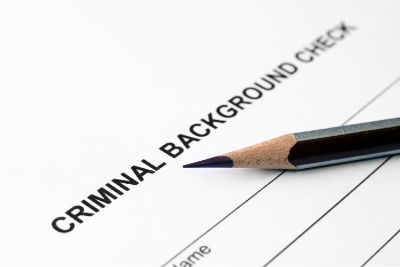Admission to the U.S. with either a misdemeanor or criminal record

Entry to the U.S. - Denied entry of LPR convicted of a crime when reentering the U.S.
Can a Lawful Permanent Resident (LPR) be denied reentry into the U.S.?
The short answer is that Lawful Permanent Resident's (LPR) convicted of certain crimes cannot be denied reentry into the U.S., although they will be referred to an Immigration Hearing to determine deportability. Once a determination of deportability has been made, the LPR status is revoked, and a deportation order handed down. Obviously, once such an order has been issued, a former LPR would not be allowed entry into the U.S. after any subsequent trip out of the U.S. unless a waiver of ineligibility is granted or if a Port Director approves a temporary parole (usually for humanitarian purposes). The legal grounds for removal of LPR status are found in the Immigration and Nationality Act, Section 237.
Some of the most common grounds for revocation are: Fraud, theft, rape and related crimes, assault and battery, money laundering, drug dealing and alien smuggling.
If the conviction is of a particularly serious nature, it is likely that you would be detained until the date of the hearing.
How can a person apply for a waiver to enter the United States if they have been or are likely to be denied admission either because of their criminal history or because they overstayed a previous visit?
There are many reasons a person may be ineligible to enter the U.S. The legal descriptions are lengthy and complex, so to help you understand them, we are providing a general description of the most common ones. This list should not be taken as a complete list of reasons to be excluded from entry. In general, you might be denied entry if you have a communicable disease, if you have a criminal record for crimes of moral turpitude (age 18 or older), for possession of or trafficking in a controlled substance, if you have any involvement with terrorism or terrorist organizations (no waivers can be approved for this category), if you have trafficked in persons, been involved in money laundering, might become a public charge because of limited financial resources, have been previously removed (deported) or have overstayed a previous period of admission to the U.S. Again, this list is not comprehensive and you should use the above link to read the complete list.
The list of crimes of moral turpitude that are reasons for exclusion from the U.S. is also quite detailed. The most common types of crimes involving moral turpitude that would make you inadmissible are murder, manslaughter, rape, theft, bribery, forgery, aggravated battery, prostitution, and fraud. At this time, driving under the influence, breaking and entering, disorderly conduct and simple assault are not considered crimes that make a person inadmissible to the U.S.
Depending on the reason for your inadmissibility into the U.S., and if you are a class of nonimmigrant where a visa is not required (e.g., most citizens of Canada), or you are a nonimmigrant with appropriate documents who subsequently becomes admissible, you may be eligible to apply in advance of your travel directly to Customs and Border Protection (CBP) for a temporary waiver of inadmissibility. The waiver application process can be lengthy (up to a year) and there is a cost of US $585.00 per application regardless of the decision on the application. Payment must be with a certified check in U.S. funds drawn on a U.S. bank for the $585.00 application fee.
The temporary waiver application, Form I-192, Application for Advance Permission to Enter as Nonimmigrant [Pursuant to Section 212(d)(3) of the INA], is on the U.S. Citizenship and Immigration Service Web site (Form I-192), as well as instructions for filling it out. This form should be filed with CBP if you are an inadmissible visa exempt nonimmigrant or a nonimmigrant with appropriate documents who subsequently becomes inadmissible under Section 212(a) of the INA. (Please refer to Section 212(d)(3)(A)(ii) of the INA and Title 8 Code of Federal Regulation 212.4(b) for pertinent statute and regulation). Please note that only forms with the expiration date 11/30/2009 in the upper right hand corner are acceptable. After February 20, 2009, older versions of the form cannot be used.
Driving Under the Influence DWI and Drugs
The U.S. does not deny entry to persons with a "Driving Under the Influence" (DUI) conviction, although if there are multiple convictions for this and or other misdemeanors, you could be denied entry.
Generally, any convictions for drug possession can result in denial of entry. If the conviction was long ago, you might contact the U.S. Embassy, Office of Consular Affairs in your country to obtain a waiver. Other misdemeanors may result in denial if they were recent


